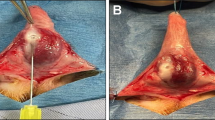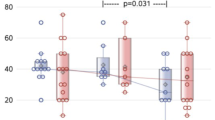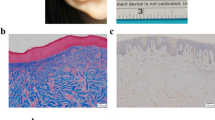Abstract
Peyronie’s disease is a fibromatosis of the tunica albuginea which affects up to 2% of men. Plaque development is believed to result, at least in part, from fibroblast proliferation and excess collagen deposition. Numerous oral and intralesional therapies have been used, including verapamil, colchicine and steroids. The purpose of this study was to investigate the in vitro effects of prostaglandin-E1 (PGE1), verapamil and colchicine on the proliferation rates of fibroblasts derived from Peyronie’s disease tissue.
Using tissue culture, multiple cell lines comprising fibroblasts from Peyronie’s plaque, normal tunica and foreskin were established. Cells of low passage were removed from the parent culture and incubated with varying concentrations of PGE1 (0.1–10 mg/ml), verapamil (10–1000 mg/ml), and colchine (2.5 mg/ml). Proliferation was assessed at 48, 72 and 96 hours using the VybrantTM MTT cell proliferation and then compared to control cells.
Six plaque lines and 5 normal tunical cell lines were established. These cell lines exhibited excellent linear growth in culture media alone. Co-culture wih PGE1 resulted in no significant inhibition at 0.1 and 1 mg/ml, but a mean inhibition of 60.6±11.5% at a concenrtation of 10 mg/ml was noted. Similar inhibition was noted with verapamil at 100 and 1000 mg/ml with a mean inhibition of 65.2±10.6%. Colchicine resulted in a mean inhibition of 28% at a concentration of 2.5 mg/ml. Maximum inhibition occurred at 96 hours in all cases. There was no statisitically significant difference in proliferation rates between plaque and normal tunical cell lines.
We have developed an in vitro model to assess the effects of biologically active agents on the growth of fibroblasts derived from Peyronie’s disease tissue. Our data suggests that PGE1, verapamil, and colchicine inhibit in vitro proliferation of fibroblasts at specific concentrations. Refinement and application of this knowledge may allow the development of useful pharmacologic strategies for men with PD.
This is a preview of subscription content, access via your institution
Access options
Subscribe to this journal
Receive 8 print issues and online access
$259.00 per year
only $32.38 per issue
Buy this article
- Purchase on Springer Link
- Instant access to full article PDF
Prices may be subject to local taxes which are calculated during checkout
Similar content being viewed by others
Author information
Authors and Affiliations
Rights and permissions
About this article
Cite this article
Anderson, M., Shankey, T., Lubrano, T. et al. Inhibition of Peyronie's plaque fibroblast proliferation by biologic agents. Int J Impot Res 12 (Suppl 3), S25–S31 (2000). https://doi.org/10.1038/sj.ijir.3900558
Published:
Issue Date:
DOI: https://doi.org/10.1038/sj.ijir.3900558
Keywords
This article is cited by
-
Conservative Therapy for Peyronie’s Disease: a Contemporary Review of the Literature
Current Urology Reports (2021)
-
Nonsurgical management of Peyronie’s disease
Nature Reviews Urology (2019)
-
Effect of intralesional verapamil for treatment of Peyronie’s disease: a randomized single-blind, placebo-controlled study
International Urology and Nephrology (2009)
-
Erectile dysfunction and Peyronie’s disease in patient with retroperitoenal fibrosis
International Urology and Nephrology (2008)
-
Is intralesional interferon α2b a safe and effective minimally invasive treatment for Peyronie's disease?
Nature Clinical Practice Urology (2007)



